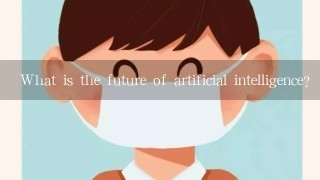What is the future of artificial intelligence?

Advancements in AI:
- Natural Language Processing (NLP): AI systems will become more proficient at understanding and generating human language, enabling applications like chatbots, machine translation, and language learning.
- Computer Vision (CV): AI will continue to improve in recognizing and understanding visual information, leading to advancements in image recognition, object detection, and video analysis.
- Reinforcement Learning (RL): AI systems will be able to learn through trial and error, enabling them to make optimal decisions in complex and dynamic environments.
- Multimodal AI: AI systems will integrate and understand information from multiple sources, such as text, images, and videos, leading to more comprehensive understanding.
Emerging Trends:
- Ethical AI: The development and use of AI must be guided by ethical principles, ensuring fairness, transparency, and accountability.
- Human-AI Collaboration: AI and humans will work together to achieve better outcomes, leveraging the strengths of each.
- Artificial Intelligence as a Service (AIAaS): AI will become accessible to a wider range of users, enabling innovation and economic growth.
Potential Impacts:
- Transforming industries: AI will revolutionize industries such as healthcare, finance, transportation, and manufacturing.
- Solving global challenges: AI can assist in tackling issues like climate change, disease outbreaks, and poverty.
- Creating new jobs: AI will create new opportunities in fields such as AI development, data science, and robotics.
Challenges:
- Data privacy and security: Protecting sensitive data used by AI systems is crucial.
- Bias and fairness: AI systems can inherit biases from the data they are trained on, leading to unfair or discriminatory outcomes.
- Job displacement: AI may automate tasks currently performed by humans, leading to concerns about unemployment.
Conclusion:
The future of AI holds immense potential to transform society, with advancements in NLP, CV, RL, and multimodality enabling AI systems to perform complex tasks with increasing accuracy and efficiency. Ethical considerations and challenges must be addressed to ensure the responsible development and use of AI.






































































